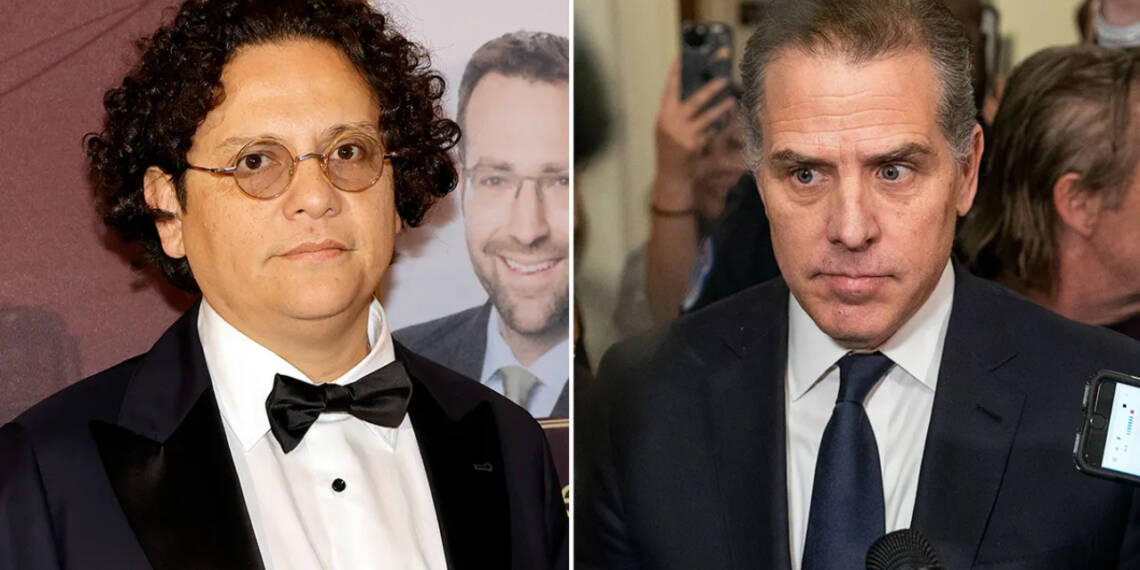Art dealer George Berges, responsible for the sale of Hunter Biden’s paintings, provided testimony to Congress that challenges the White House’s official stance on the transactions. The Biden administration asserted that Hunter Biden’s art sales adhered to an ethics agreement designed to preserve the anonymity of buyers and maintain a proper distance in the transactions. However, Berges’ testimony introduces a conflicting perspective, prompting further examination of the circumstances surrounding the sales.
In his congressional testimony, George Berges, proprietor of Berges Art Galleries, asserted that Hunter Biden was likely acquainted with the identities of approximately 70% of the buyers of his artworks, with a notable portion being Democratic donors. The initial agreement between Hunter Biden and Berges featured an uncommon clause permitting Hunter to be aware of the buyers, a departure from standard practices in art sales. Subsequently, a modified contract eliminated this provision, stipulating that the identities of buyers remain undisclosed.
Can George Berges shed light upon the reasoning behind the initial inclusion of an unconventional clause in the agreement between him and Hunter Biden, allowing for the disclosure of buyers’ identities, and the subsequent removal of this provision in a modified contract?
Join us on Telegram: https://t.me/tfiglobal
Berges highlighted the distinctive nature of Hunter Biden’s request, noting that none of the other 15 artists under his representation expressed a similar interest in knowing the identities of their buyers. It is noteworthy that Berges terminated his commercial association with Hunter Biden four months prior to his congressional testimony, although their personal friendship persists. This testimony sheds light on the evolving terms of the contractual agreements and the unique circumstances surrounding Hunter Biden’s involvement in the art market, prompting further scrutiny into the intersection of art, ethics, and political affiliations.

George Berges’ testimony reveals that President Joe Biden was informed about the art gallery handling the sales of Hunter Biden’s artworks, and there were two interactions between Biden and Berges—an initial phone call and a subsequent in-person meeting at the White House. This testimony corroborates earlier assertions made by Devon Archer, another business associate of Hunter Biden, regarding Joe Biden’s awareness and involvement in his son’s business transactions.
Can the administration clarify the specific nature of President Joe Biden’s interactions with George Berges, both the initial phone call and the subsequent in-person meeting at the White House, and how these align with ethical standards?
The purchasers of Hunter Biden’s art include notable figures such as Hollywood lawyer and Democratic donor Kevin Morris, along with Elizabeth Naftali, who holds an appointment by Joe Biden to a federal commission.
Furthermore, the facilitation of the connection between Hunter Biden and George Berges for the art sales was attributed to Lanette Phillips, a fundraiser for Joe Biden.
Read More: Biden dances on not one but 3 Landmines
Hunter Biden’s initial art sale through Berges transpired in December 2020, on the cusp of Joe Biden’s assumption of the presidency. Berges engaged in two distinct art sales agreements with Hunter Biden, one in 2020 and another approximately a year later. During his testimony, Berges asserted that he did not communicate with the White House concerning the ethics agreement that had been publicized by the administration.

Regarding Hunter Biden’s initial art sale in December 2020, can George Berges elaborate on the factors that determined the timing of the transaction, particularly its proximity to Joe Biden’s assumption of the presidency, and how this aligns with industry practices?
This testimony prompts inquiries into the transparency and ethical considerations surrounding Hunter Biden’s art transactions, particularly in relation to the involvement of President Joe Biden. The timing of the first sale, occurring just before Biden’s presidency, coupled with the absence of communication with the White House on the ethics agreement, underscores the need for a thorough examination of the circumstances surrounding these art sales.
Read More: Did Biden just send American Finance Giants to somehow keep Ukraine running?
The revelation that Hunter Biden may have been acquainted with a significant portion of the buyers, coupled with the unusual inclusion and subsequent removal of a clause allowing buyer disclosure, adds to the intrigue surrounding these art transactions. Berges’ highlighting of the distinctive nature of Hunter Biden’s request, juxtaposed with the lack of similar interest among other artists he represents, further deepens the scrutiny into the evolving terms of contractual agreements.
Moreover, the disclosure of President Joe Biden’s awareness and interactions with George Berges regarding the art gallery handling Hunter Biden’s sales, as well as the involvement of fundraiser Lanette Phillips in facilitating connections, adds a political dimension to the scrutiny.
As we navigate this intricate web of art, ethics, and political affiliations, one cannot help but wonder: How will the revelations from Berges’ testimony influence the broader landscape of transparency, ethics, and political involvement within the realm of high-profile art transactions? And when these revelations come to light, it is definitely going to create trouble for President Biden.
Watch More:








